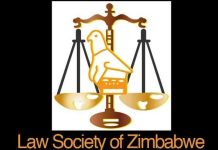On the 17th of December 2019, Cabinet at its 45th meeting approved several amendments to the Constitution. Some of the notable proposed amendments relate to the appointments of Vice Presidents, the Prosecutor General, Public Protector, promotion of judges and the terms of office of judges.
The other notable proposed amendments relate to the composition of the provincial councils and the extension of the provision on the women’s quota which was scheduled to end in 2023.
The Constitution provides for its amendment. Although amendments to the Constitution are allowed these ought to be necessary for the promotion of the rule of law and protection of the principles of democracy. Our Constitution is a democratic document which came out of extensive consultations.
It is a national document which should be enduring. Amendments to the Constitution must be necessary for the enhancement of enshrined rights, accountability and good governance. Amendments must not be retrogressive.
In terms of Section 92 of the Constitution, a presidential candidate chooses running mates who upon election become the national Vice Presidents.
The rationale for this provision was to introduce nondisruptive succession planning whilst ensuring that in the event of a Vice President taking over the office of President he would be having the people’s mandate.
The effect of the proposed amendment to Section 94 means that Vice Presidents will no longer be elected but appointed by the President.
This removes the transparency and democratic process sought to be achieved by Section 92 in relation to the assumption of these important offices.
In addition, the Vice President’s tenure will be at the pleasure of the President. An amendment is expected to cure a problem or mischief. This is not apparent in the present case. The proposed amendments further seek to change the procedures for the appointment of the Prosecutor General.
The current procedure for the appointment of the Prosecutor General is similar to that of the judges. This is a transparent way of appointing this important office, which like the judiciary ought to enjoy prosecutorial independence.
The proposed amendment whereby the President appoints the Prosecutor General upon consultation with the Judicial Services Commission (ISC) is reverting to the old constitution. The current provisions promote transparency in the appointment process.
This will not be achieved under the proposed amendment. It is not clear what mischief the proposed amendment seeks to address.






